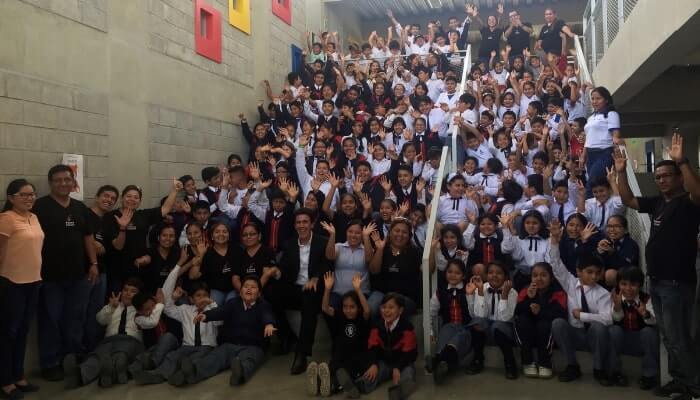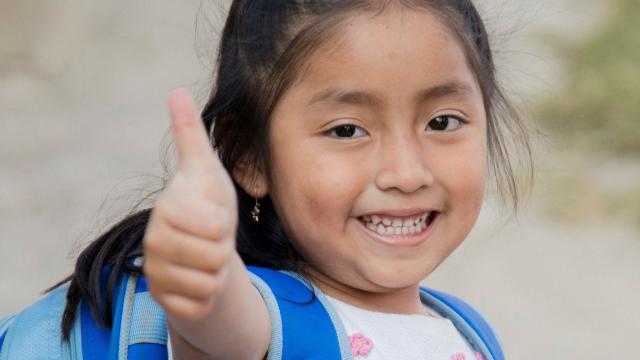My school experience was not ideal with overcrowded classrooms of up to 45 students in a room. There was no personalisation in our learning experience.
I grew up in Arequipa in Peru and studied at one of the most traditional schools in the city. My school experience was not ideal with overcrowded classrooms of up to 45 students in a room. There was no personalisation in our learning experience. Every teacher taught in a lecture style and there was not nearly enough student participation or group work. My experience in university changed my life.
I went to a public university that was not among the best in Peru, but gave me an opportunity to work with a talented group of people. In a healthy mix of competitiveness and collaboration, we fostered each other’s dreams and worked to help each other succeed. We were privileged to have a few incredible teachers that motivated us to push ourselves. Up to 15 people from our cohort of 38 have gone on to become CEOs of companies. This experience gave me insight into how much a good teacher, peer set and environment positively influence the student experience; these key ingredients make all the difference in a student’s life.

Our dream is to be part of a significant education sector reform for Peru’s 28,000 public schools. We have a dual strategy to make the most impact at scale: run our own high quality schools and codify and share our academic model more widely.
When I was the dean of a graduate school, I was dismayed to find that many of my students had large gaps in their soft skills. This was not something that could be easily fixed at their age. I started thinking about building a K-12 school network that could develop these soft skills at a young age and fill the gap by the time students reached the undergraduate level.
My most memorable moment at Futura Schools so far was seeing our students enter school on the first day we opened in our inaugural year. It was an incredible feat because just three months before the school was set to open, our buildings were not fully constructed. Yet parents trusted us and enrolled their children in our school without a building because they believed our promise of a quality education with a unique academic model. They were astonished when the buildings were done in time, delivering on the sketches and plans we had showed them. While this was an amazing show of trust, it was also a signal to me about the lack of education opportunities for the emerging middle class and the important work we had ahead.
One of our challenges has been keeping up with our very quick expansion. In our first two years, we built five schools in three different cities and in our third year, we built five more schools in four regions. However, this fast expansion is helping us towards our ultimate goal of running at least 30-40 schools. We have a dual strategy to make the most impact at scale: run our own high quality schools and codify and share our academic model with public schools in Peru. We want to compliment the public school system and share our insights and lessons learned on how to build quality infrastructure at the lowest cost and a results-based approach for teacher buy in. Our dream is to be part of a significant education sector reform for Peru’s 28,000 public schools.
My advice for new entrepreneurs hoping to start a school is that the main purpose of your endeavour should be to provide a quality education and make a difference in the lives of the children you are serving. To start a school is to change the lives of children and young people. You cannot gamble with the education of children. You need to have a clear objective and academic model in your mind from the beginning and work towards that.
One challenge of sharing my story and mission is that many times, the audience I am speaking to believe the idea of changing the world through education is a long-term and complicated issue and do not want to take immediate action. The speed at which education is transforming the world is amazing and unbelievable. Every day the interaction of technology and students is creating change faster than we thought. We as adults of the older generation need to be part of the current revolution and not lose the opportunity to transmit our knowledge. If we believe education is moving at a snail’s pace and do not keep up, we will be left behind.
One book I would highly recommend is The Fifth Discipline by Peter M. Senge about mental models, teamwork, personal mastery and systemic and critical thinking. Those pillars are the core of my professional ‘set of rules’ and part of Futura’s model. Every student in our schools must become a master of their own learning process because this is the key to improving yourself.

